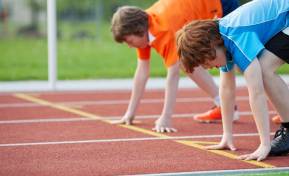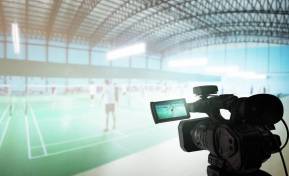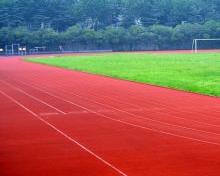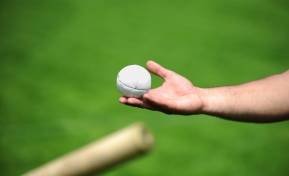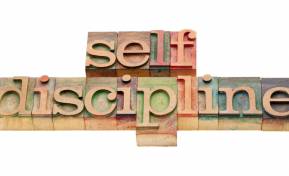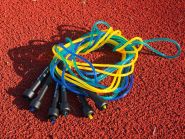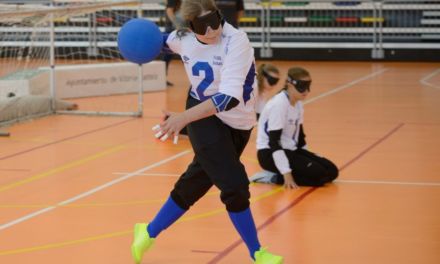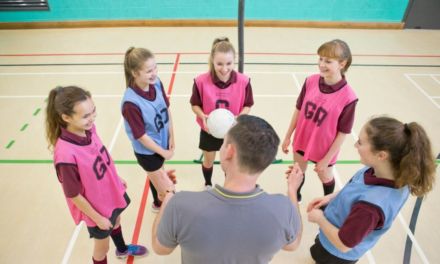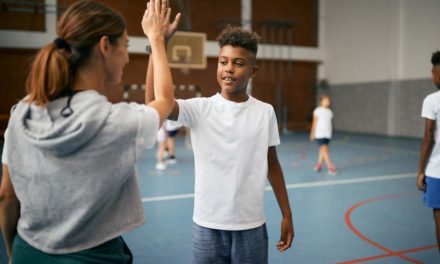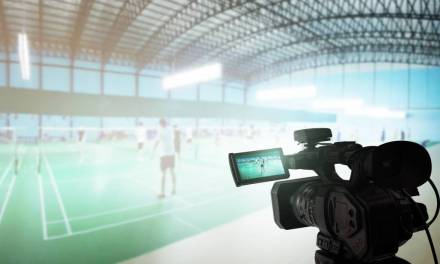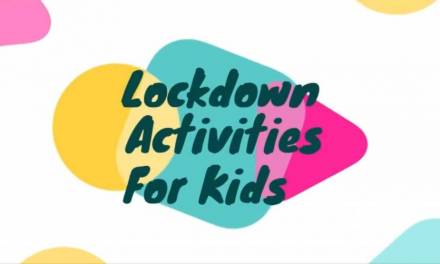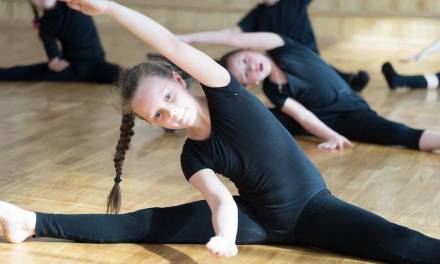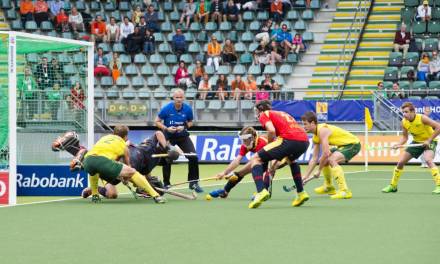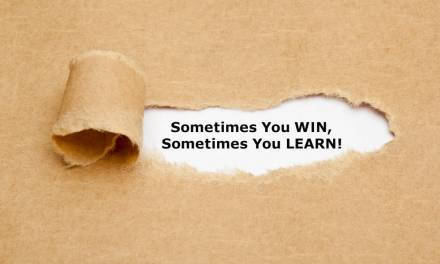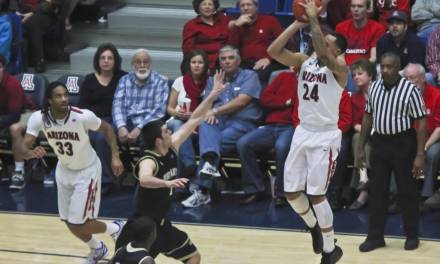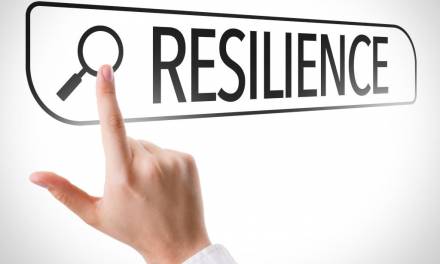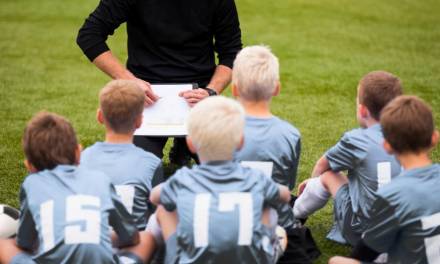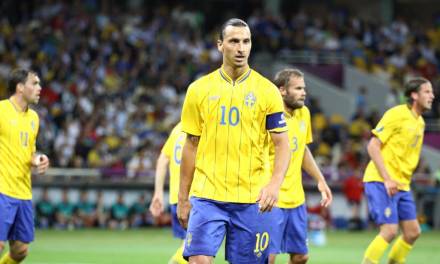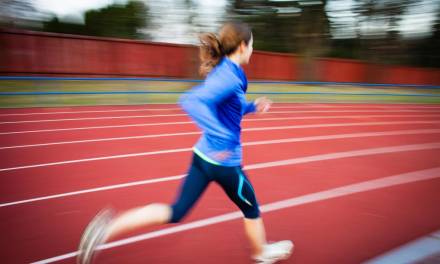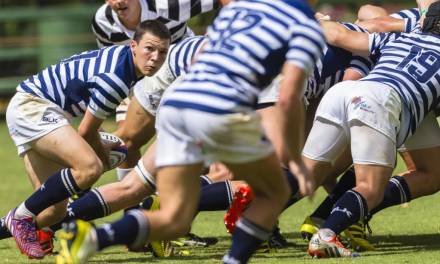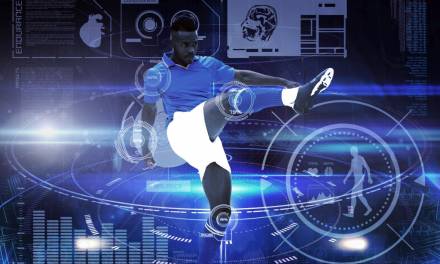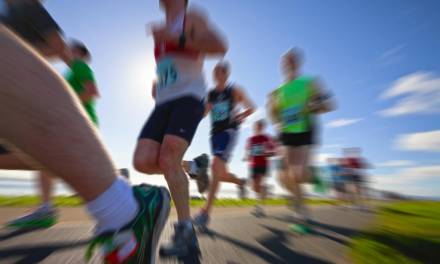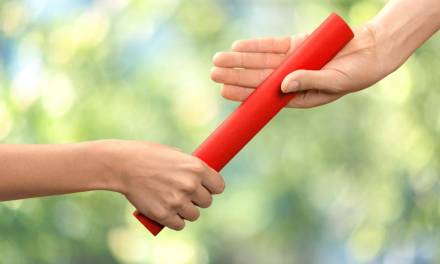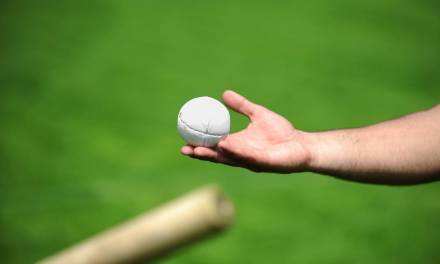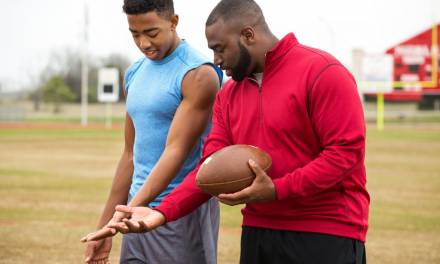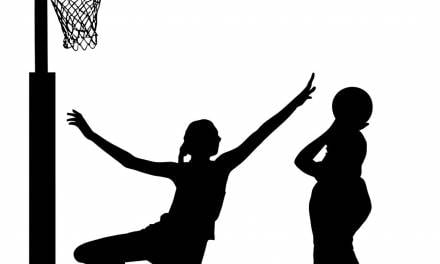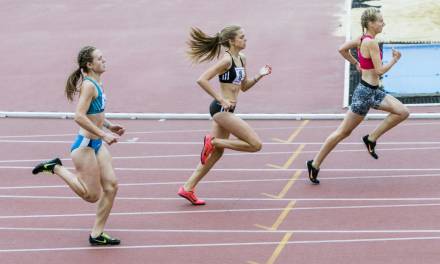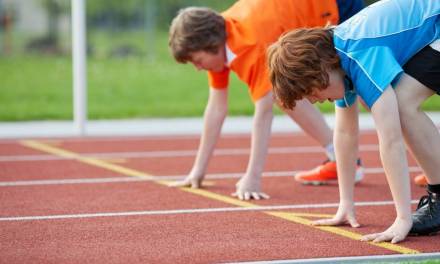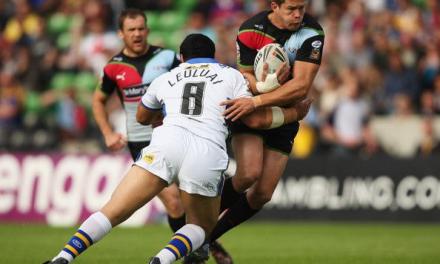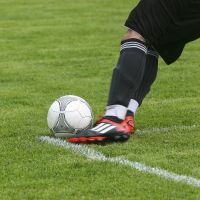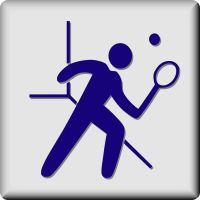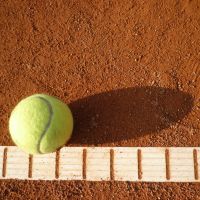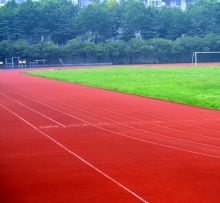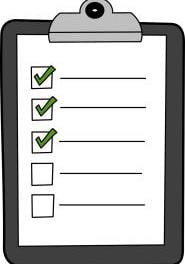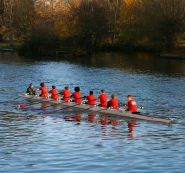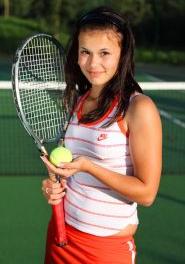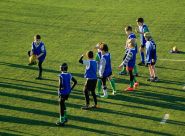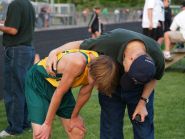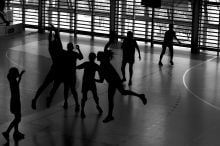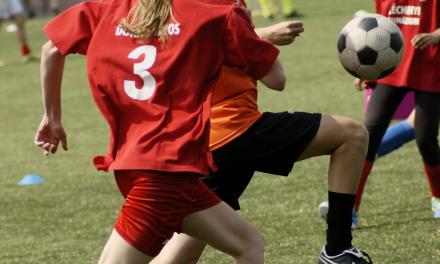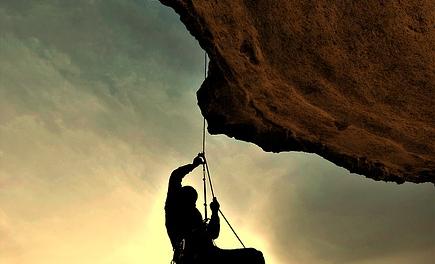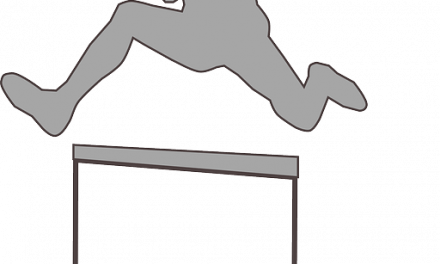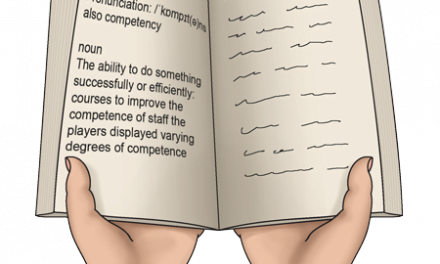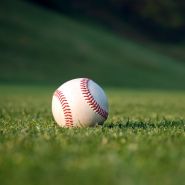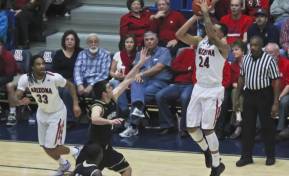
Coaching & Skills
RECOMMENDED
How PE teachers can make adjustments for children with visual impairment
Reading time: 3 minutes
Visual impairment can, in extreme cases, be a strong deterrent to participation in physical activity and PE. Impairments can range from pupils requiring glasses right up to those with a complete loss of sight.
Here are some suggestions of adaptations that PE teachers can implement to adjust their lessons and fully include visually impaired students.
Read MoreEffective delivery of netball lessons for a non-specialist PE teacher
Reading time: 3 minutes
Netball – typically, you either love to deliver it, or you loathe teaching it. But as the popularity of the sport rises – a whopping 151,000 people regularly take part in netball in England (Statista, 2022), particularly in the mixed and men’s format – it has become more important that PE teachers have the ability to deliver effective netball lessons to their pupils.
Traditionally, many have found the rules of netball ‘fiddly’ or ‘niggly’. In this article, we discuss some strategies that a non-specialist could use to support their delivery and ensure that the game of netball is delivered to the highest of standards.
Read MoreWhy PE can help with children’s mental health following COVID
Reading time: 3 minutes
In the last months, there has been a significant increase in e-learning, which has resulted in students and instructors entering a new world of virtual lectures, tutorials, and evaluations. This has had a substantial impact on education. Regarding technology and availability, e-learning presents a challenge not just to students but also to their instructors.
Read MoreWhy performance analysis is important for development in sport
Reading time: 3 minutes
Performance analysis can increase performance and allow professionals to perform to the best of their abilities.
Read MoreQ&A with Keith Hackett and former Premier League referees
Reading time: 2 minutes
PEOffice is teaming up with KeysToReferee to bring you an exclusive Q&A with elite former Premier League referees at 3pm today.
Former head of the PGMOL (refereeing body) Keith Hackett, who also refereed the 1981 FA Cup Final, will be fronting the session.
This week he will be joined by special guests, Roger Dilkes and Mark Halsey. Click here to sign up.
Read MorePEOffice TV: Easy PE lessons during lockdown
Reading time: 2 minutes
PEOffice has today launched PEOffice TV to enable your children to continue to complete PE lessons during lockdown.
Exercise has been a major talking point of the lockdown, with concern raised that the measures would stop people getting their recommended amount of exercise.
Keep an eye on PEOffice’s Facebook page for future videos. For this week’s PE lesson click the link below.
Read More5 fun warm ups to engage young children
Reading time: 2 minutes
The warm up is a crucial part of any PE lesson. It should prepare the body for exercises by gradually increasing heart rate and circulation.
The process of the warm up should loosen the joints and increase blood flow to the muscles, preparing the body for physical activity and preventing injuries.
Delivering physical education in the cooler months can be a challenge for teachers, yet with these five fun drills you can help to ensure pupils are engaged during the PE warm up.
Read More5 Fun drills for hockey penalty corners
Reading time: 2 minutes
Penalty corners are frequently given in hockey matches when a defender fouls an attacking player within the 25-yard area, so it is an area that many coaches focus on in training to help the team prepare for this set play.
Read MoreIs learning to lose as important as winning?
Reading time: 2 minutes
Winning games can help children to experience how hard work can result in success and individual performance can build a child’s confidence, as well as developing teamworking skills when playing teams sports. However, there is also a lot to learn from losing.
Read MoreCoaching 3-point shooting in basketball
Reading time: 2 minutes
3-point shooting is one of the most difficult skills to teach in basketball.
Players in the NBA make scoring 3-point shots look relatively simple. However, a lot of coaching and experience has gone into their ability to make these shots.
Read MoreWhat is resilience in PE?
Reading time: 2 minutes
PE not only helps to encourage pupils to lead healthy lifestyles and enjoy participating in sports, it can also help to develop key life skills.
Such skills include confidence, teamwork, and working towards objectives and goals.
Read MoreCoaching for competitions
Reading time: 3 minutes
When you are coaching athletes to participate in competitions, there is much more involved than simply working on improving their performance.
Depending on the sport and the type of competition, there will be a wide range of other factors that you will need to consider as coach.
Read MoreCoaching the lone striker role in football
Reading time: 3 minutes
When you are experimenting with team formations, playing with a lone striker is an option that can be used in various situations – often as a tactic for increased defensive stability or maybe because a striker gets injured and there are limited substitute options.
Read MoreTactics for long distance track races
Reading time: 3 minutes
Long distance running – that track stretches out in front of even the most able of students. To improve and gain confidence, students need focus, goals and strategies.
But what are the best strategies for long distance track races? Is it just about training and ability or is there anything that you can do to achieve better performances through tactical race management?
Read MoreEffective skills coaching for both forms of rugby
Reading time: 2 minutes
Rugby League or Union: do you have a preference? These two types of rugby have as many differences as similarities, making each sport entirely different to watch or play.
However, there are some fundamental factors which are common to both, with certain skills benefiting players of either sport. Here’s a closer look at providing effective skills coaching which would be useful for both forms of rugby.
Read MoreUsing technology to help coach your football team
Reading time: 2 minutes
Technology has had such a positive impact on so many parts of our lives, so why shouldn’t we make use of it to enhance our sports teaching experience?
Coaching can be a rewarding but often stressful experience, and if technology can help make your job a little easier then why not go for it?
Read More5 training tips…to help prepare for a marathon
Reading time: 3 minutes
Whilst preparing for a marathon, thorough and effective training is required for maximum performance and to avoid injury. Marathons require serious stamina and a steady pace.
Read MoreTeaching young athletes how to pass the relay baton
Reading time: 3 minutes
Teaching a group how to pass the relay baton can prove to be an exercise in slowing down as much as it is speeding up the changeover. To properly develop technique, young athletes need to be walked through the process.
Read MoreCoaching catching in rounders
Reading time: 3 minutes
Whether you’re 8 or 80, rounders is the ideal team sport that everyone can enjoy. Great for improving hand to eye co-ordination, it can either be played at a competitive level or just for fun in the playground.
If you’re coaching rounders, one of the most fundamental skills to teach is the ability to catch. Not everyone starts with a natural aptitude for catching the ball but there are some top techniques which can help every player learn.
Read MoreHow to coach mental preparedness for competitive sport
Reading time: 3 minutes
It’s a universally accepted fact that sports performance can be positively impacted by mental preparedness and fortitude, and that visual imagery can hand sportspeople a competitive edge (just as it does for Wayne Rooney, Jonny Wilkinson and Andy Murray).
Yet despite this, most coaches focus much of their training efforts on physical aspects. Too tough, too complex, too unscientific? Actually, mental preparation has plenty of science behind it, and it’s far simpler to harness than you may have previously thought.
Read MoreCoaching to improve shooting skills in netball
Reading time: 2 minutes
When your team is on the court, how many times is the ball landing in the centre of the ring? If you’re not taking every opportunity to score goals, it’s going to be much more difficult to win matches, particularly against a challenging opponent.
Read MoreUsing sport to teach self-discipline
Reading time: 2 minutes
Sport can and should serve as a powerful tool for self-discipline – not only helping children with behavioural problems in the classroom, but also boosting focus, academic achievement and in-classroom engagement.
Read MoreHow running 400m regularly can benefit your 100m times
Reading time: 2 minutes
If you try to simply sprint for the finish line when you’re running the 100m, you’ll never reach your full potential. To get the best time takes more than running flat out; a combination of speed, endurance and impeccable technique produce the best results.
Therefore when you’re coaching athletes to run this shortest sprint, it can be beneficial to add in some other distances too such as the 400m.
Read MoreHow to train for a sporting event
Reading time: 3 minutes
Are your students preparing for a big sporting event? Whether it’s running, cycling, swimming or something else, our practical advice will help you get them ready.
If you’ve been following our Get Moving! series you’ve hopefully inspired your students to participate in more sport and maybe even sparked a real passion for for it.
Read More5 Fun drills for rugby league
Reading time: 5 minutes
Rugby league focuses on the key skills of handling, passing, running and tackling. Players are expected to have quick hands, good sprint speed with bursts of pace to try to break tackles, and the strength to tackle and halt their opponents’ runs.
Here are 5 drills that we hope you will find useful to help your rugby league players enhance these key skills.
Read MoreFootball – Teaching Tactics
Reading time: 2 minutes
Football is the biggest sport in England, with over 2 million people over the age of 16 playing once a week, and millions of children playing regularly.
This being the case, understanding tactics is an important part of the sport. But how young should coaches start to teach tactics to children? And how important are tactics to children’s development at grassroots level?
Read MoreA Basic Guide to Squash
Reading time: 3 minutes
England Squash and Racketball is the National Governing Body (NGB) for squash in England and is the umbrella that makes the decisions that affect everyone who plays squash. The first ever squash court was built in 1864 in England with over 50,000 courts in more than 185 countries worldwide.
Read MoreTennis – Training for Different Surfaces
Reading time: 2 minutes
Tennis is a sport that is played on a number of surfaces over the calendar year, therefore the athletes need to adapt to different conditions in order to train successfully. Some athletes do suit certain surfaces, such as Rafael Nadal who is widely considered as the “king of clay” thanks to his dominance at the French open where he has won 9 out of the last 10 tournaments. The three different surfaces are clay, grass and hard courts.
Read MoreTrack and Field Conditioning
Reading time: 2 minutes
Athletics as a sport is all about being the best in a given discipline; who can sprint the quickest, who can run a best distance in the fastest time, who can jump the furthest or who can throw the longest distance.
This is why training strategies such as strength conditioning plays such a huge part, especially to elite athletes who are trying to break world records and win medals. Strength and conditioning coaches will work alongside the athlete’s other coaches to calculate and form a precise training schedule to meet the needs of the sport.
Read MoreAssessment
Reading time: 2 minutes
In order to perform effective assessment in PE, we have to overcome specific barriers that do not arise in other subject. Firstly, it is harder to spot if the knowledge being taught has been understood and implanted by the students in a PE lesson. This differs due to technicalities of each individual sport, from the tactics, to technique, to reading of the game.
Assessing the children practically is about personal perspective, as two individuals may have contrasting ideas on how best to assess one pupil in the lesson.
Read MoreRowing – Training Skills
Reading time: 2 minutes
Training to become an Olympic rower and following in the footsteps of Sir Steve Redgrave and Katherine Grainger, who both have achieved Olympic success, has very humble beginnings when it comes to training.
Over 40,000 people take part in water rowing, with the aim of that improving to over 46,000 participants by 2017 which is the final year of the Whole Sports Plan outlined by British Rowing.
Read MoreBasic Skipping
Reading time: 2 minutes
When skipping is mentioned, two things spring to mind. One is the game played by children in a playground all over the world, the other is a training exercise used by many sports including boxing and football. Both have the ability to have a positive impact on a range of sports and for those who participate in those sports.
Read MoreRacket Sports – Badminton and Tennis Technique
Reading time: 2 minutes
Technique is a topic which is heavily discussed in sport as people of all ages strive to achieve the “text book” technique of their sport, whether that be a volley in football, hurdling in athletics or serving in tennis. All the professional tennis and badminton players around the world had to start somewhere, usually involving a PE teacher showing them a “perfect example” of a current world-class athlete in the sport.
Read MoreRugby Skills
Reading time: 2 minutes
England is set to host the Rugby union World Cup in 2015, two years after the rugby league world cup was joint hosted by England, France, Ireland and Wales. For our country to have hosted both world cups in the different formats shows how important rugby is to our nation. Without doubt English rugby union’s greatest moment came in 2003, when England won the world cup thanks to a drop goal from Johnny Wilkinson beat Australia 20-17.
Read MoreYou are the inspiration
Reading time: 2 minutes
As a teacher, some things are changeable based on your personality and philosophy, but there are some essentials for every PE teacher to bear in mind and to take to every lesson or session, without question.
Never take away belief: always build
Read MoreDeveloping Confidence to get Involved
Reading time: 2 minutes
Students can sometimes lack a little confidence when it comes round to getting involved in sports, but there are some simple ways to get pupils confident and excited about participating.
Read MoreTaking Part in Competitive Sports
Reading time: 2 minutes
Sports are by nature competitive and there will be a time where you have to turn from training and non-competitive activities to competition.
There are a few important things that you have to remember when putting your students into competitive situations.
Read MoreTackling Demanding Activities
Reading time: 2 minutes
There will be some sporting and physical activities that your students find challenging. It is your job to tackle their doubts and overcome any fears they may have before partaking in particularly difficult sports.
Read MoreOvercoming Barriers
Reading time: 2 minutes
You will face many intellectual and physical challenges that your students have to overcome. These could be from disabilities or lack of sporting acumen. Either way, you will have to focus on making your activities accessible to all.
Read MoreDeveloping Competence in Sport
Reading time: 2 minutes
Being competent in your given sport is essential if you are to succeed. With competence brings confidence, and with both of these factors on your side, you will be ready to achieve your goals.
Read MoreInnovative practices for teaching rounders
Reading time: 4 minutes
Teaching and learning in rounders should be exciting for everyone involved, with rapid progress through innovative practices.
I’m lucky as I work with EYFS right through to top level performers representing their country, both in schools and satellite centres. This has really helped me developing a long-term plan for teaching rounders, which aims to support all pupils to be ‘the best they can be’ by challenging them through inclusive and innovative lessons.
Read More

